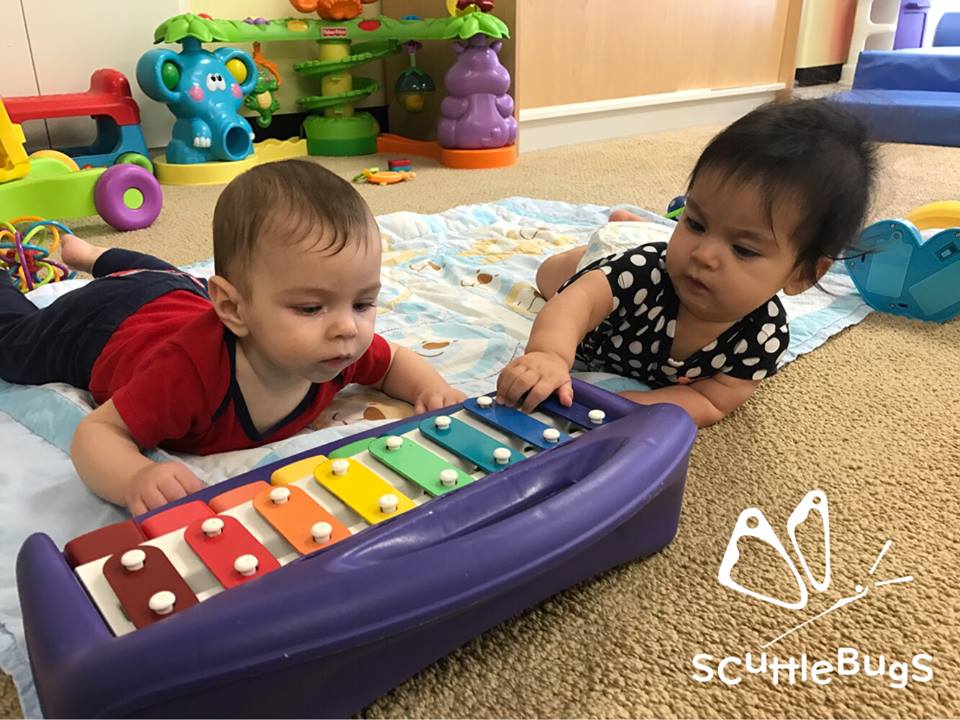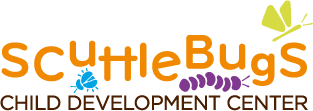I’m sure many of you have witnessed your children nodding their heads, moving their bodies, or even rocking out to a beat. Before they’re even able to talk! Children use music as a means to express themselves, whether they are infants, or adolescent teens. Even in adulthood, music is an important part of our lives. We sing in the shower, attend musical concerts, blast loud music while driving in the car with the windows down, or wind down the day with a bubble bath and soothing classical music.
At ScuttleBugs, we encourage musical exploration in all our classrooms. We play music during day-to-day activities to enhance movement and music appreciation. We sing songs during circle time and dance along to a variety of rhythms and beats. Additionally, our children have music lessons every other week, taught by Golden Acorn Music, to further develop their skills.
Below are the areas we focus on in each of our age groups:
Infant Program (roughly 6 weeks of age to 15 months):
Our goal is to build on the children’s interest in music while supporting their development. We teach them simple words and sounds, and have them clap and wave to the beats of a multitude of songs.

Toddler Program (roughly 15 months to 24 months):
We teach them how to imitate full-body movements, such as clapping, stomping, swinging arms up and down, and jumping. We also teach them simple musical concepts such as starting and stopping, clapping (or stomping) loudly and softly, and increasing or decreasing our pace.
Junior Preschool Program (roughly ages 2-3):
Children in this age group are developing music control. We introduce certain vocabulary and concepts , such as pitch (high vs. low), and short, simple rhythms. Multilingual songs are also introduced as language develops.
Preschool Program (roughly ages 3-4):
Preschoolers are already familiar with many types and genres of songs, and enjoy learning new songs. In this age group, they are able to control their beats better and can repeat basic patterns. Boom boom ka, boom boom ka, etc. Do re mi, do re mi, mi re do, etc.
Pre-K Program (roughly ages 4-5):
Laying the groundwork for children in Pre-K enables them to access and enjoy a variety of music as they get older. During Music Lessons, our Pre-K children are continuing the basics of simple rhythms and patterns on drums. They are also learning to develop music control like dynamics, tempo, and timing.
It is so important to expose our children to music at a young age. Music Education in Early Childhood Development promotes brain development and plays a huge role in language acquisition and reading comprehension. It also benefits all other areas of development, including social and emotional skills, fine and gross motor skills, cognitive development, and overall literacy. Plus, it gives us pure joy, so why not?
